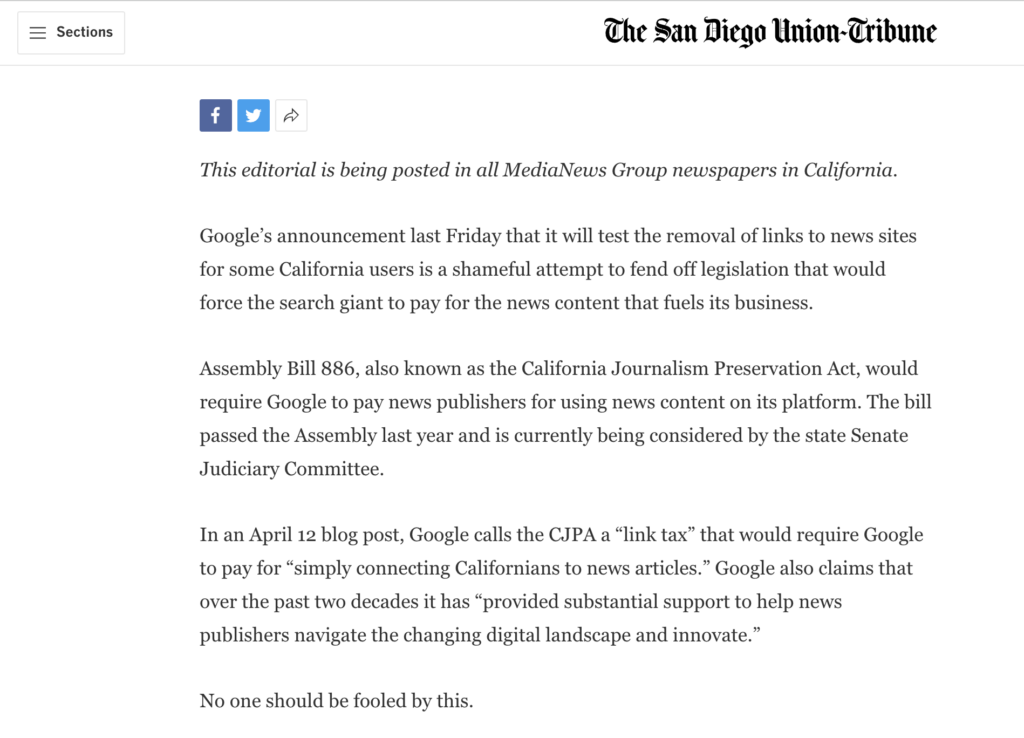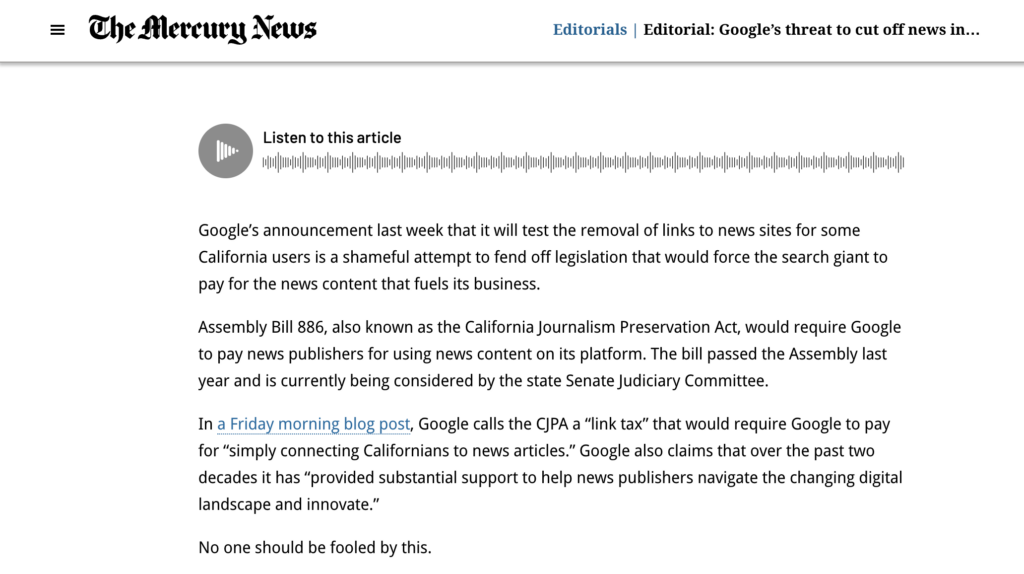New York Hedge Fund Mobilizes Local Publications in Search of California Payout

Legislators in Sacramento continue to deliberate over the California Journalism Preservation Act (CJPA), but instead of local journalism, national businesses such as Alden Global Capital stand to be the true beneficiaries of the bill. A New York hedge fund, the group is collectively the second-largest owner of newspapers in the country. Why is this the case when California legislators claim the bill would revitalize the local journalism ecosystem?
In response to Google’s recent announcement that it would begin a testing process for a small population of California users to measure the impact of the proposed legislation, Alden Global weaponized its control over local news publishers (both in California and other parts of the country) and mobilized them to publish articles endorsing the CJPA and deeming Google’s actions “anti-competitive”. This effort was a clear attempt to utilize this legislation to bankroll its newsrooms across the country — despite an extremely troubled past that included massive layoffs and extreme budget cuts following an Alden takeover.
Dozens of newspapers owned by the group ran editorials, arguing that Google’s preparation for potential regulation was “a bullying tactic.” These pieces ran in California publications including San Jose Mercury News and Orange County Register — as well as papers in different parts of the country that would not be affected, such as the Orlando Sentinel and Boston Herald.
While the editorials all professed to have different authors, each editorial was identical or near-identical in nature. However, only the San Diego Union-Tribune included a disclaimer that the piece was being posted in all NewsMedia Group newspapers (which is owned by Alden) in the state.


Dubbed “one of the most ruthless of the corporate strip-miners seemingly intent on destroying local journalism”, the “grim reaper of American newspapers” and “soulless” by a recent Seattle Times opinion piece detailing the demise of eight Minnesota community newspapers, the conglomerate has been accused by some of greatly reducing the number of journalists working at its publications to cut costs through staff layoffs. Because of stories like these, stakeholders have grown increasingly concerned about where the funds from the legislation will go and who they will benefit, at a time when budgets are increasingly strained for smaller newsrooms.
This bill would both favor and fund global media conglomerates and hedge funds — not the local journalists actually doing the critical reporting to inform their communities. It is also likely to increase the number of “ghost papers” that operate with a very small team to produce low-cost content, therefore, incentivizing clickbait. DisCo has discussed some of the bill’s many other flaws before, among others.
With this in mind, it’s no surprise that a conglomerate with a history like Alden’s is encouraging its newspapers to advocate for the passing of this legislation. A May 2023 coalition letter signed by a dozen bipartisan advocacy groups opposed to the CJPA expressed the lack of emphasis on local journalism and how these proposed fee payments would ultimately “go to large and out-of-state or even international publishers, including those increasingly owned by hedge funds or broadcasting conglomerates.” The reality of the situation is legacy media companies benefit greatly from traffic being driven to their websites. This bill’s working model would allow them to continue to benefit from these digital services while also demanding payment that would bankroll their executives over local newsrooms.
As currently written, the bill requires an eligible digital journalism provider with five or fewer employees to spend at least 50% of funds received from arbitration on news journalists and support staff. However, nowhere in the bill does it specify how the funding should be spent for those newsrooms that have more than five employees. This is deeply telling of who would be benefiting most from this extra funding in larger newsrooms.
The CJPA represents an attempt to subsidize one industry at the expense of another that consistently drives traffic to publications, especially smaller newsrooms in search of a larger audience. California must consider alternative approaches that support a diverse and dynamic news ecosystem and see through ongoing lobbying attempts by media conglomerates that have everything to gain through the expected subsidies.








